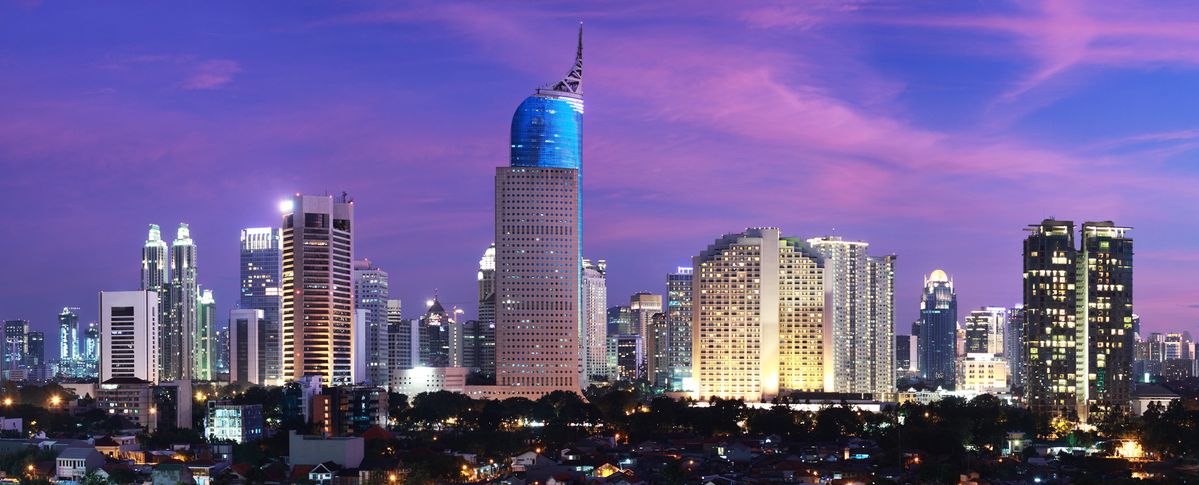Why Indonesia is shifting Its capital from Jakarta
Inside Indonesia's plan to move the government out of Jakarta to a newly-built capital city in a forest on the island of Borneo.

Jakarta is soon to become an ex-capital city. Indonesia is planning to move its administrative headquarters from its richest island of Java to the forest island of Borneo. President Joko Widodo is betting that a new capital for the Southeast Asian nation will better spread the wealth among its 267 million citizens – and ease the pressure on overcrowded Jakarta, Indonesia’s commercial and political hub for centuries.
1.What’s wrong with Jakarta?
As well as bursting at its seams, the city is sinking. Two-fifths of Jakarta lies below sea level and parts are dropping at a rate of 20 centimeters (8 inches) a year. That’s mostly down to the constant drawing up of well water from its swampy foundations. Stultifying traffic congestion and polluted air are a daily reality for Jakarta’s 10 million inhabitants. The gridlock costs an estimated 100 trillion rupiah (US$7 billion) a year in lost productivity for the greater Jakarta area, known as Jabodetabek, encompassing 30 million people.
2. Where will the new capital be?
Construction will begin in 2021 and government offices will start relocating in 2024, but exactly where hasn’t been decided. For sure, it will be on Kalimantan, the Indonesian part of Borneo island that’s also home to two Malaysian states (Sarawak and Sabah) and the tiny nation of Brunei.
The island lies some 1,400 kilometers (870 miles) northeast of Jakarta and has the advantage of being located geographically in the middle of Indonesia, where it’s largely protected from the kinds of natural calamities (earthquakes, tsunami and volcanic eruptions) that befall other islands. Bukit Soeharto in the east is among the candidates.
3. What’s the economic rationale?
Jokowi, as Widodo is known, says the move will help address income disparity in the archipelago of more than 17,000 islands. Java accounts for almost 60% of Indonesia’s population and contributes about 58% of its gross domestic product. Kalimantan accounts for 5.8% of the population and contributes 8.2% of GDP. The island has reasonably well developed airports and roads and widespread access to drinking water. Authorities have talked about building a modern, smart and green city which can serve as the capital for a century.
4. What’s the cost?
The price tag for building a city from scratch to accommodate 1.5 million people is estimated at 466 trillion rupiah ($33 billion). Projects will be funded by a mix of government, state-owned enterprises, private companies and private-public partnerships. Of those, Jokowi says the smallest burden will fall on the state. Environmental groups worry about the cost to an already depleted natural habitat. Borneo, home to endangered species such as the orangutan, has lost 30% of its forests in a little over four decades, much of it to the paper and pulp industry and palm oil plantations.
5. Can Indonesia afford this?
Apparently. With Jokowi pitching the new capital as a symbol of Indonesian identity and progress, the project will be part of his legacy, meaning budget is unlikely to be a constraint. The outlay is equivalent to the government’s annual infrastructure spend but will be spread over a decade or so. Indonesia is already splurging, with $350 billion spent of infrastructure projects during Jokowi’s first term and another $412 billion planned for the next five years.
6. Has this worked for other countries?
Indonesian authorities point to successful relocation of at least 30 capitals in the past century, including Brasilia (Brazil), Astana (Kazakhstan) and Canberra (Australia). On the other hand, Naypyidaw, conceived by Myanmar’s junta, remains practically empty. While a new capital will typically host government buildings, it’s rare to see a large-scale uprooting of private business and the general population. Other countries in the process of shifting their capitals include Egypt.
7. What will happen to Jakarta?
It’ll keep growing. The population is on course to reach 35.6 million by 2030, helping it topple Tokyo as the world’s most populous city. Since the greater metropolitan area generates almost a fifth of Indonesia’s GDP, Jakarta will continue to be the country’s main commercial hub. There’s a $43 billion plan to sort out the traffic, including a Mass Rapid Transit rail line that opened in 2019. As for Jakarta’s submergence problem, the president is planning a giant wall to keep big waves out.


24 Aug 2011
Total posts 1210
Jakarta's traffic and pollution are truly out of control. It is rare to have a day where visibility is not severely reduced due to pollution haze and the water in Jakarta Bay is truly disgusting. Likewise, I typically allow over 3 hours to travel the 55km from our Indonesian office to Soekarno-Hatta Airport.
I doubt the relocation of the capital will overcome the chronic overcrowding of the city; so many people are moving in from the regions chasing employment in the Jakarta basin.
Borneo is much more religiously diverse than Java with a religious mix of about 60% Muslim and then a mix of Christian, Hindu, Borneo and others. Java is around 90% Muslim with Sumatra at around 95%. Regardless of the island, Indonesia is a very tolerant country with people of all religions generally living in peace with each other and celebrating their diversity.
It's a great country with terrific people. I encourage anyone thinking of going there to overlook the obvious infrastructure problems and immerse themselves in a great culture with amazing people and brilliant food options.
Qantas - Qantas Frequent Flyer
30 May 2013
Total posts 372
I can't help but be extremely worried about what this might mean for large forested parts of Borneo and its orangutan population. Indonesia's track record on protecting endangered forests and species is abysmal.
Hi Guest, join in the discussion on Why Indonesia is shifting Its capital from Jakarta